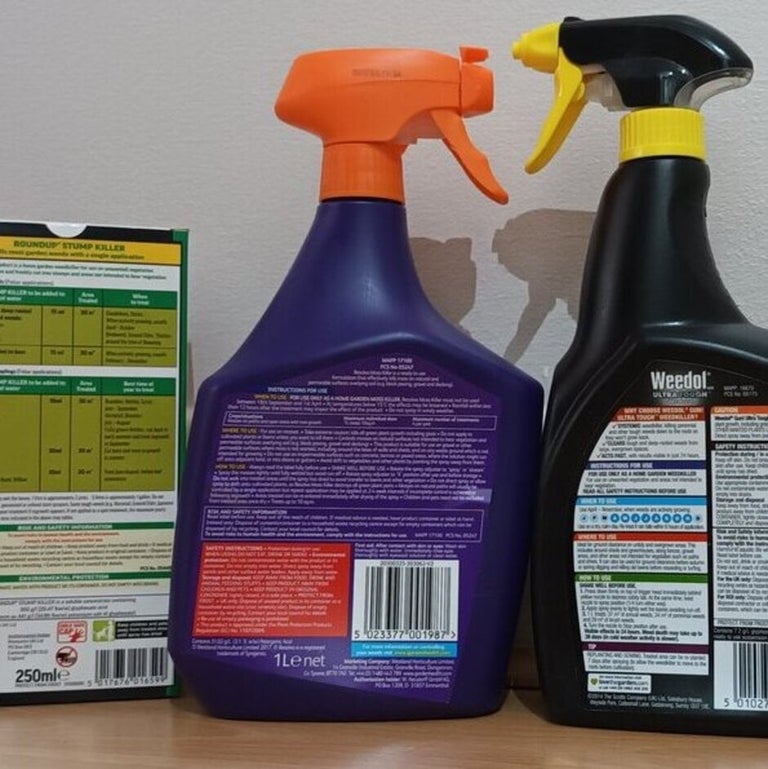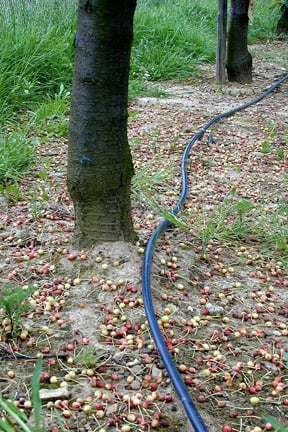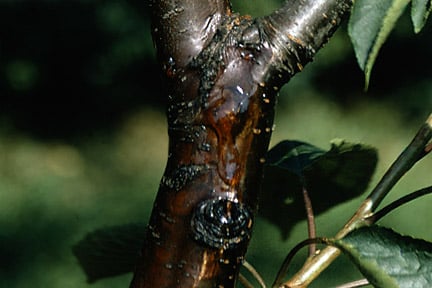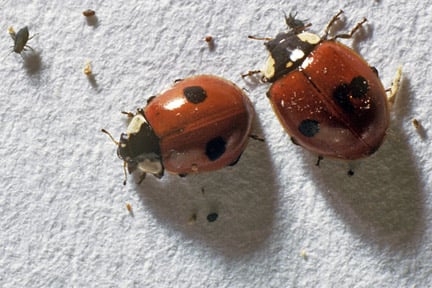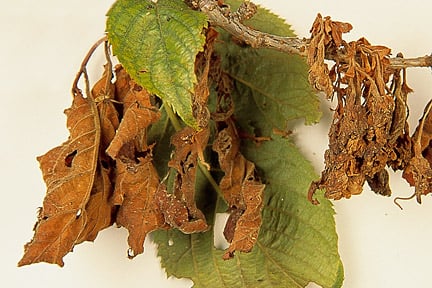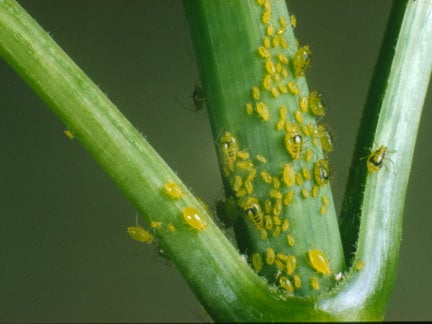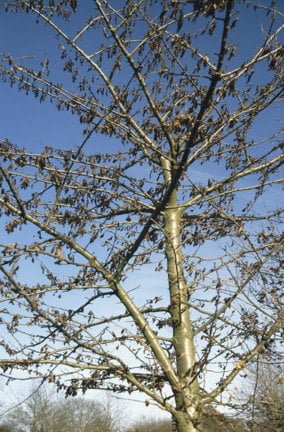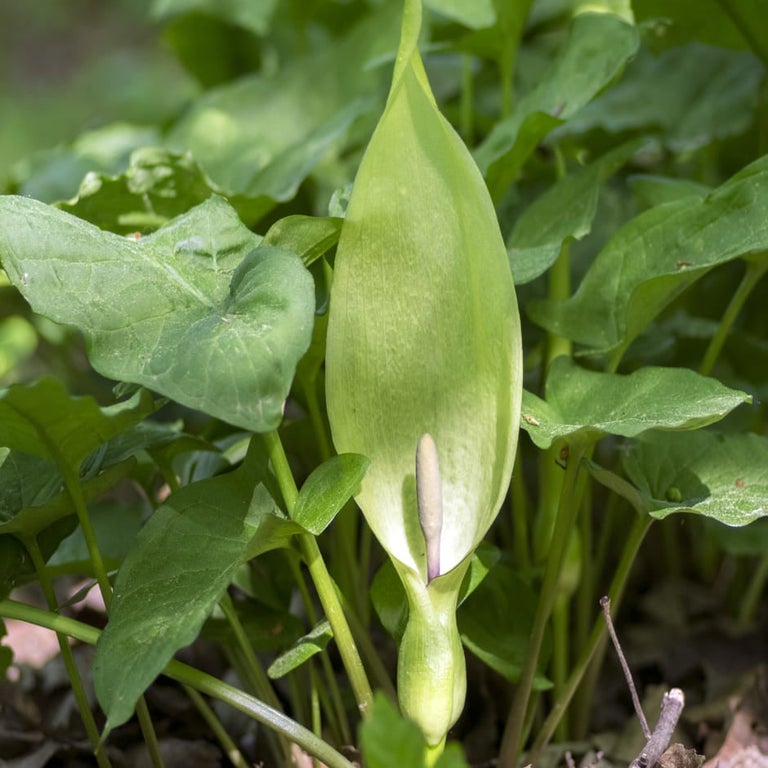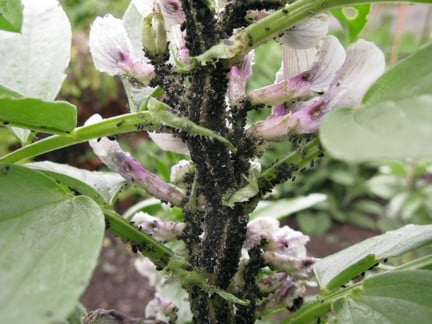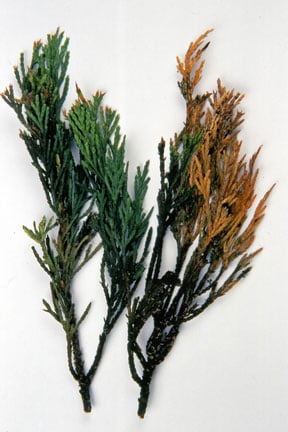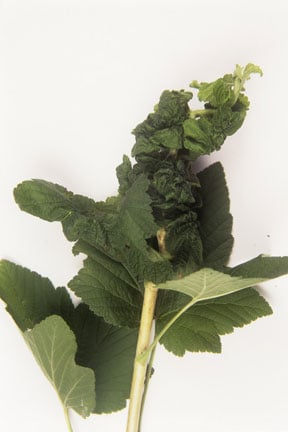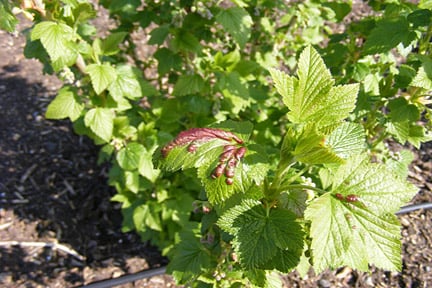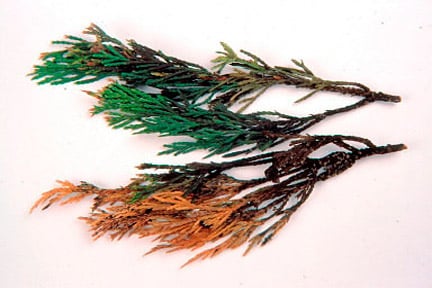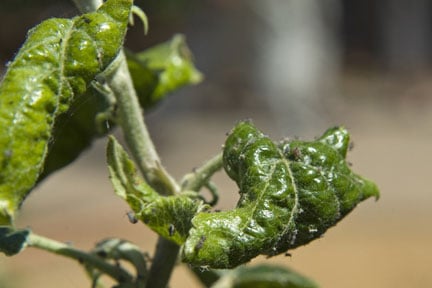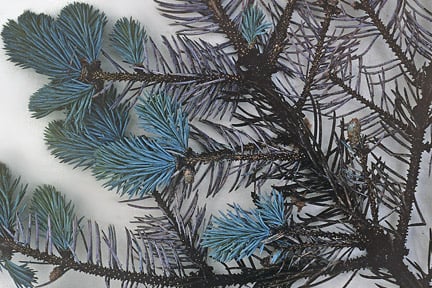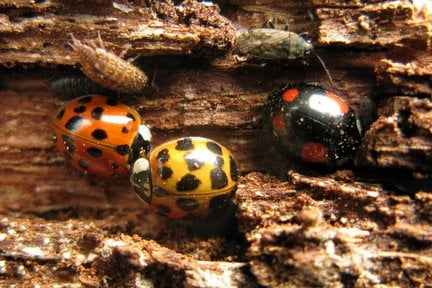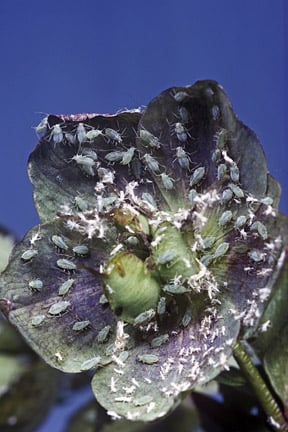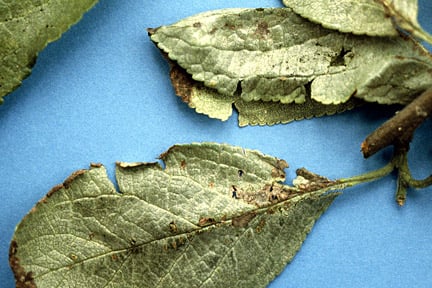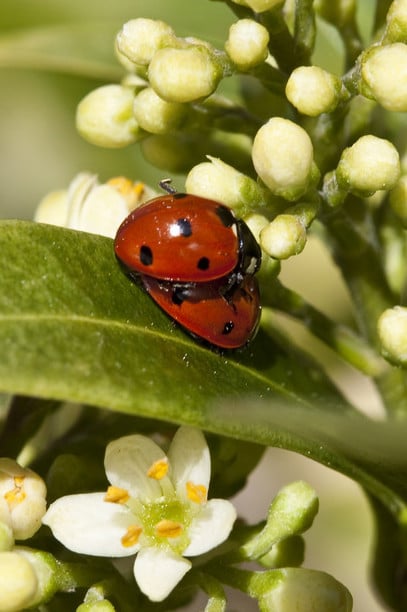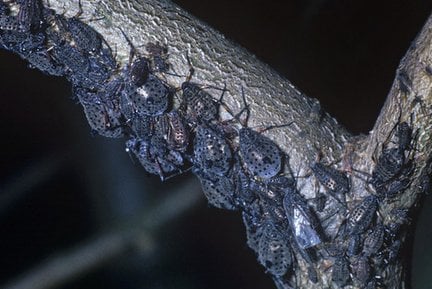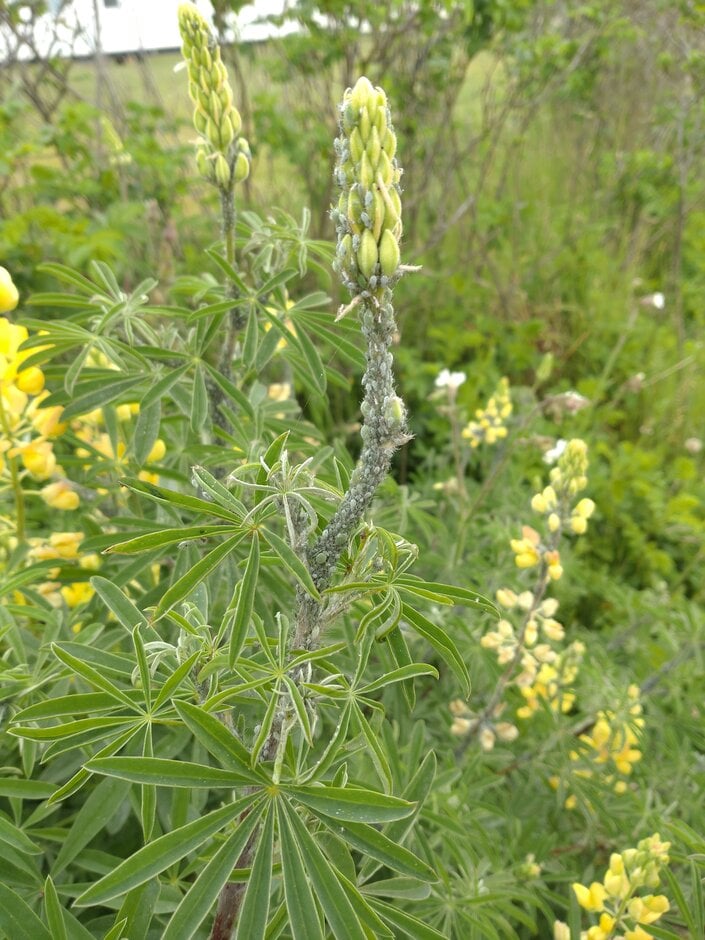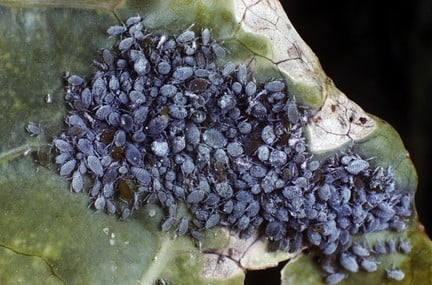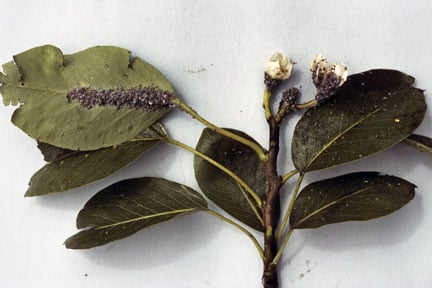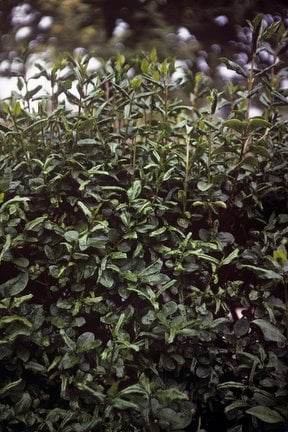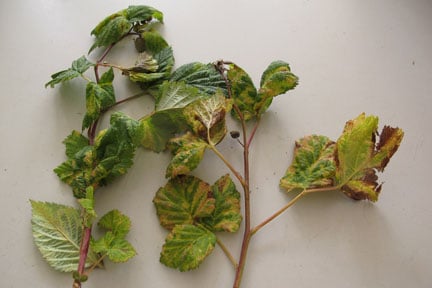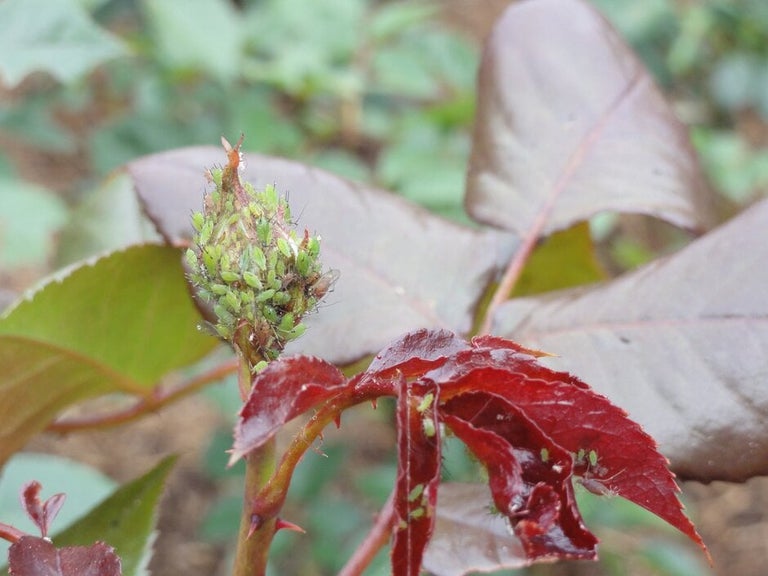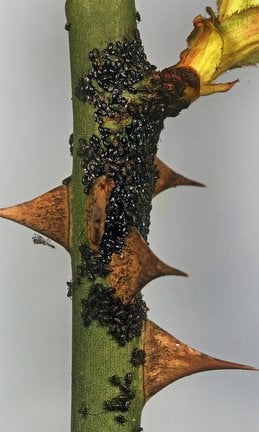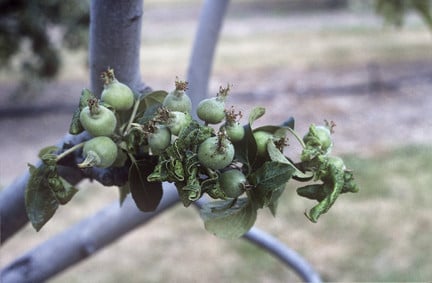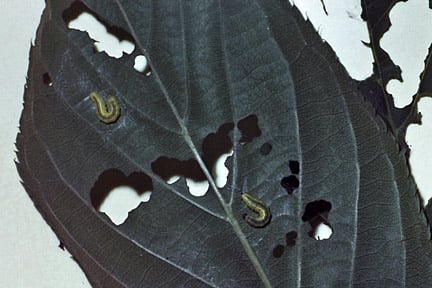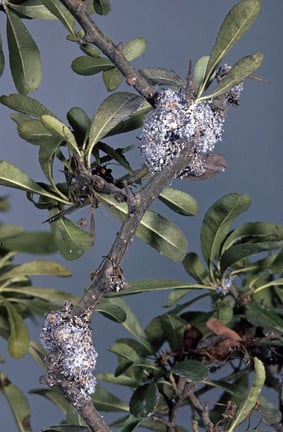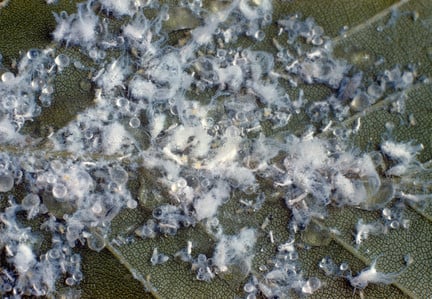
Quick facts
Common name - Cherry blackfly
Scientific name - Myzus cerasi
Plants affected - Fruiting cherries and ornamental forms of Prunus cerasus, P. avium and P. padus
Main symptoms - Curled and distorted leaves at tips, black aphids present in spring
Most active - May–July
What is cherry blackfly?
Cherry blackfly is an aphid that sucks from the foliage of fruiting cherries and ornamental forms of Prunus cerasus, P. avium and P. padus during late spring and early summer, causing tight leaf curling.
Symptoms
- During late spring and early summer, the undersides of the leaves and the shoot tips are covered with shiny black aphids
- Leaves become severely crumpled and curled
- Later in summer the damaged leaves may dry up and turn brown, but the aphid leaves the plant
- Foliage becomes sticky with the sugary honeydew that aphids excrete, and a black sooty mould may develop
- Susceptible types of cherry will survive aphid damage, but they can suffer from curled leaves in most years
- The damage seems to have little effect on the trees long term health and affected trees often put on a good crop
- Predators will often wipe out populations of these aphids by late spring
Management
What should I do? Here are our top tips to your most common questions on managing cherry blackfly.
Should you remove cherry blackfly? Tolerate these aphids. It is usual to have some in a healthy, balanced garden. They are a vital food source for a wide range of wildlife in the garden.
Do cherry trees with cherry blackfly still produce cherries? Yes. Cherry trees with cherry blackfly will still produce fruit. There are other reasons that cherry trees may have reduced fruit production, see our page on reasons for unproductive fruit trees; cherry fruit drop can also be a problem. Cherry blackfly aphids will not kill cherry trees.
Do I have to control cherry blackfly? You don’t have to kill or control them. They are part of the of gardens and a vital food source for other wildlife in your garden.
Should I use to control aphids? No - The RHS recommends that you don't use pesticides. This is because most pesticides (including organic types) reduce biodiversity, including natural enemies, impact soil health and have wider adverse environmental effects.
- Where possible tolerate populations of aphids they form an important part of many food chains and can be part of a healthy garden ecosystem
- On established trees aphids can usually be considered part of the biodiversity they support, natural enemies will normally reduce numbers during summer
- Where an ornamental, rather than a fruiting cherry is required, the problem can be avoided by growing the less-susceptible Japanese types of flowering cherries
- Check plant frequently from spring onwards so you can act before the damage has developed
- Use finger and thumb to squash aphid colonies where practical
- Encourage ‘aphid predators’ in the garden, such as ladybirds, ground beetles, hoverflies, parasitoid wasps and earwigs. In spring, aphid populations increase before the natural enemies are active in sufficient numbers – so if you wait a while, they’ll often give the control
Biology
Cherry blackfly overwinters on the tree as eggs, from which wingless aphids hatch in spring as the foliage develops. The winged forms appear in June-July, and these migrate to wild flowers known as bedstraws, Galium species. Populations of this aphid on cherries trees gradually get eaten by natural enemies and die out during July, but damaged leaves remain visible for the rest of the summer. There is a return migration from bedstraws in the autumn, when the winter eggs are laid.
